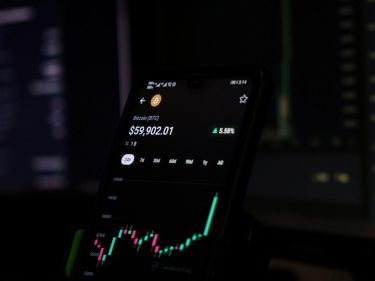Does Coinbase benefit from Binance’s guilty plea?
A version of this story appeared in our The Guidance newsletter. Sign up here.
With the legal uncertainties surrounding Binance now resolved, Coinbase, the largest cryptocurrency exchange in the US, finds itself in an intriguing position.
On the one hand, it’s well-positioned to scoop up some of Binance’s US market share.
On the other hand, legal experts say, the ripples of Binance’s downfall will challenge Coinbase’s business model.
Let’s get into it. But first, to recap:
Binance, the world’s largest cryptocurrency exchange by volume, pleaded guilty to US criminal charges stemming from its failure to put in place anti-money laundering protections.Under the terms of a settlement agreement with the government, Binance will pay $4.3 billion in penalties, submit to an intensive three-year monitoring programme, and its CEO and founder, Changpeng Zhao, has resigned.
What does this have to do with Coinbase?
Silicon Valley veteran Brian Armstrong launched Coinbase in 2012.
The exchange chose to take a compliant path — it registered for state licences, strictly vetted and limited the coins it listed, and even went public in 2021.
That approach cost Coinbase when Binance burst onto the scene in July 2017.
As Armstrong wrote recently on X, going public meant that Coinbase “couldn’t always move as quickly as others.”
“It’s more difficult and expensive to take a compliant approach. You can’t launch every product that customers want when it’s illegal,” Armstrong said.
Since the founding of Coinbase back in 2012 we have taken a long-term view. I knew we needed to embrace compliance to become a generational company that stood the test of time. We got the licenses, hired the compliance and legal teams, and made it clear our brand was about trust…
— Brian Armstrong 🛡️ (@brian_armstrong) November 21, 2023
Regulators have accused Zhao and Binance execs enriching themselves by knowingly dodging securities laws.
Binance also acted under the cover of layers of obfuscation that made its corporate structure tricky to nail down — it didn’t, for instance, have a board of directors or headquarters listed in any nation.
At its peak, Binance had 60% of the world’s crypto trading volume and still boasts about 43% of market share.
Last week’s events vindicated Armstrong’s cautious approach.
Binance has already started delisting trading pairs, and assets — including sanctioned crypto mixer Tornado Cash’s token TORN.
It must now beef up compliance, and will be unable to move fast and break things.
That will cost Binance. Most legal experts I’ve spoken to expect to see it leave the US altogether.
That’s good news for US competitors — especially those that, like Coinbase, have laboured to meet regulatory standards, XReg Consulting managing director Aaron Unterman told me.
“[For those businesses] it’s a good scenario … Though for quite a long time, it was a disadvantage in terms of market share,” he said.
Also, the scourging of Binance leaves Coinbase to a more resilient market.
“If this had happened a year ago, there would have been significant knock-on effects that would have damaged the crypto market significantly,” Unterman said.
“But the impact has not caused panic or thoughts of other failures. It was expected, and it creates opportunities for other players in the market.”
But Binance’s downfall will complicate matters for Coinbase, too.
Crypto investors are eagerly awaiting regulatory approval of spot Bitcoin exchange-traded funds filed by heavyweight asset managers like BlackRock.
The fact that the world’s largest exchange will no longer be a criminal enterprise brings legitimacy to the industry, and enhances the possibility of ETF approval, according to several market watchers.
That’s not an unmitigated advantage for Coinbase.
Competition from BlackRock could compress fees to almost nothing — a blow for an exchange that charges anything from 0.6% to 3%, as DL News markets correspondent Adam Morgan McCarthy writes.
And then there’s Coinbase’s ongoing lawsuit with the US Securities and Exchange Commission.
That hinges on technical securities law interpretations, rather than criminal charges.
Still, Unterman said, the Binance case could bolster the SEC’s claim to be the primary regulator of crypto — a claim that underpins its case against Coinbase.
Look out for my article this week where I delve into this aspect of Binance’s downfall.
I welcome all tips and opinions on crypto reg. You can email me at joanna@dlnews.com.




